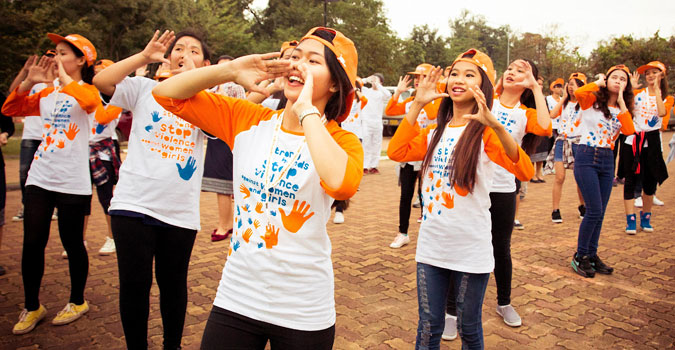
The United Nations first declared 25 November as International Day for the Elimination of Violence Against Women in 1999.
They chose this date to honour the deaths of Patria, Minerva and Maria Teresa Mirabel. On 25 November 1960, these three sisters were murdered to stop their active resistance to the brutal dictatorship of Rafael Trujillo in the Dominican Republic.
Today 25 November marks the start of the United Nations 16 Days of Action. The aim is to end violence against women by 2030.
Lockdown Made a Bad Situation Worse
Throughout the Covid-19 pandemic, violence against women and girls (VAWG), and particularly domestic violence, has dramatically escalated around the world. Enforced lockdowns severely curtailed access to services and justice for survivors. Lockdowns also seriously affected prevention efforts.
The United Nations estimates that for every three months the lockdown continued, an additional 15 million women across the globe may have experienced violence.
Disabled Women and Girls Experience More Violence
Before the pandemic, we already knew that disabled women and girls are at greater risk from domestic abuse and sexual violence than women who do not have a disability. We have also long established that people around them do not always recognise what’s happening.
One woman interviewed by researchers said:
People don’t easily see a disabled woman as a wife, partner, and mother. So I think for some people it’s hard to think well this might be a woman who’s being sexually or physically abused by her partner. Because disabled women don’t have sex, do they?
Source: Thiara R (2008) Making the links: Disabled Women and Domestic Violence. Lancaster University
Lockdown also made things worse for disabled women and girls. Lockdown made it difficult for many to access health and support services, and it also meant that the only way to reach friends and family outside the home was through technology. This made it more difficult for many to speak frankly and openly – for it’s easy for abusers to monitor digital chats.
Specialist Support for Disabled Women and Girls
As part of the Us Too project, women with learning disabilities are training to become trainers. This way they can help other people with learning disabilities, and staff who support them, to recognise the signs of abusive relationships. They will then know how to offer the right information and support.
There is also lots of grassroots actions taking place to raise awareness and raise money for charities working to support women and girls. For example, take a look at the The White Ribbon Campaign, which focuses on the actions men can take to stop violence against women and girls.
Join in! Lets end violence against women and girls – and everyone else!
Help and Support If You’re Experiencing Domestic Abuse or Coercive Control
Whether you’re experiencing abuse yourself, or you suspect someone you know is, the following organisations can help:
National Domestic Abuse Help Line
0808 2000 247
BSL
Website (with text/chatline)
Live Fear Free Helpline (English/Cymraig)
0808 80 10 800
Website
